Posted on: 13 January 2023
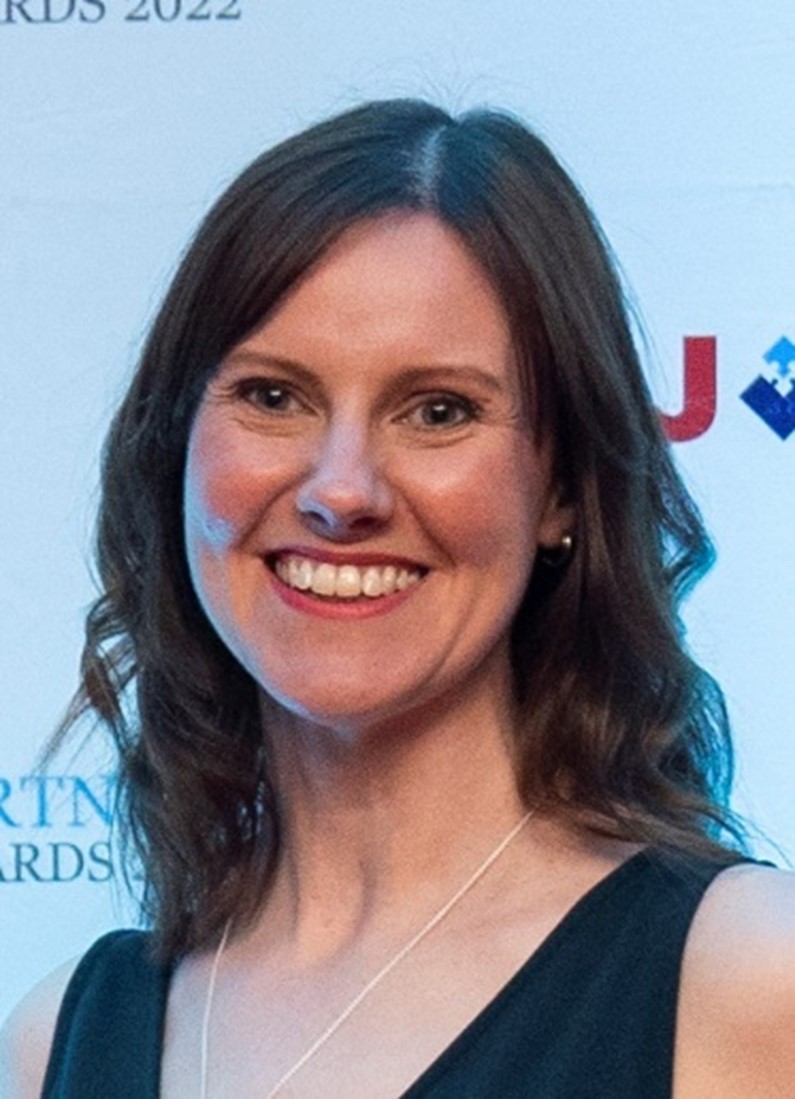 Winds of change
Winds of change
We are in the midst of a ‘perfect healthcare storm’. It was building steadily before Covid laid it bare. We’re acutely familiar with these issues, changing demographics, workforce, waiting lists, weariness and of course, winter.
Amongst the challenges, Leeds is unmoved in its ‘best city’ ambition – it is needed now more than ever. This includes best for health, wellbeing and related research and innovation. It’s a bold stance and one with a self-imposed deadline of 2030.
How does a city tackle such a storm so it can fulfil such a huge ambition?
As the Health Foundation’s Innovation Director recently emphasised, there is an urgent need to radically innovate, evaluate, implement and adapt. We need to think differently about how services are delivered, with brave, disruptive, new ways of doing things and working in partnership is vital.
Partnership is key
It’s easy to say but complicated to do. However, we have a great track record of investing in relationships and working across traditional boundaries.
This includes us - Leeds Academic Health Partnership. Ours is one of the largest of its kind in the UK and the only one in Yorkshire and Humber.
We bring together partners’ world-class expertise to help solve some of the city’s hardest health and care challenges. Our partners include the city’s three main universities, our local NHS organisations, Leeds City Council, Leeds City College, Leeds City Region Enterprise Partnership, West Yorkshire Health and Care Partnership as well as industry and third sector organisations.
As we know, people’s health and wellbeing is about so much more than the important role of health and care services, but also about social and economic determinants as Sir Michael Marmot has repeatedly shown.
So we provide the space and opportunity for partners to come together and consider challenges and improvements from a ‘whole system’ perspective.
Academic rigour
We look for opportunities where university expertise can enhance the health and care system. For example, academic rigour helps to support innovative solutions by measuring and evaluating their impact across Leeds and West Yorkshire.
Academic research also offers important, new understanding for how to tackle health and wellbeing issues. Our recent spotlight on one of our academic partners, Leeds Trinity University, highlights a few examples. How can we help spread the impact of new research which is helping young people become more mentally resilient? Or how can world-leading research into recovery from drug addiction and alcohol help reduce inequalities?
Industry innovations
Working with partners such as the Yorkshire and Humber Academic Health Science Network, the Leeds Health and Care Partnership, and dovetailing with the work of the West Yorkshire Innovation Hub, we are exploring how we bring in industry innovations to ease the city’s most pressing health and care needs. By listening carefully to what the city’s health and care system is saying are the most urgent needs, we can then consider designing focused challenges to industry innovators to help meet those needs.
By convening and enabling partners to work together to consider the art of the possible, we help lift perspectives beyond organisational pressures – however intense they may be – so they can explore how to do things differently and where it makes sense to do this together.
Should our focus be on industry innovations to automate repetitive manual tasks so that staff are freed to spend more time in frontline care? Should we make better use of synthetic data for trialling innovations, to speed up the process from development to deployment? And could we create more and better opportunities to study and validate innovations in primary care and adult social care settings?
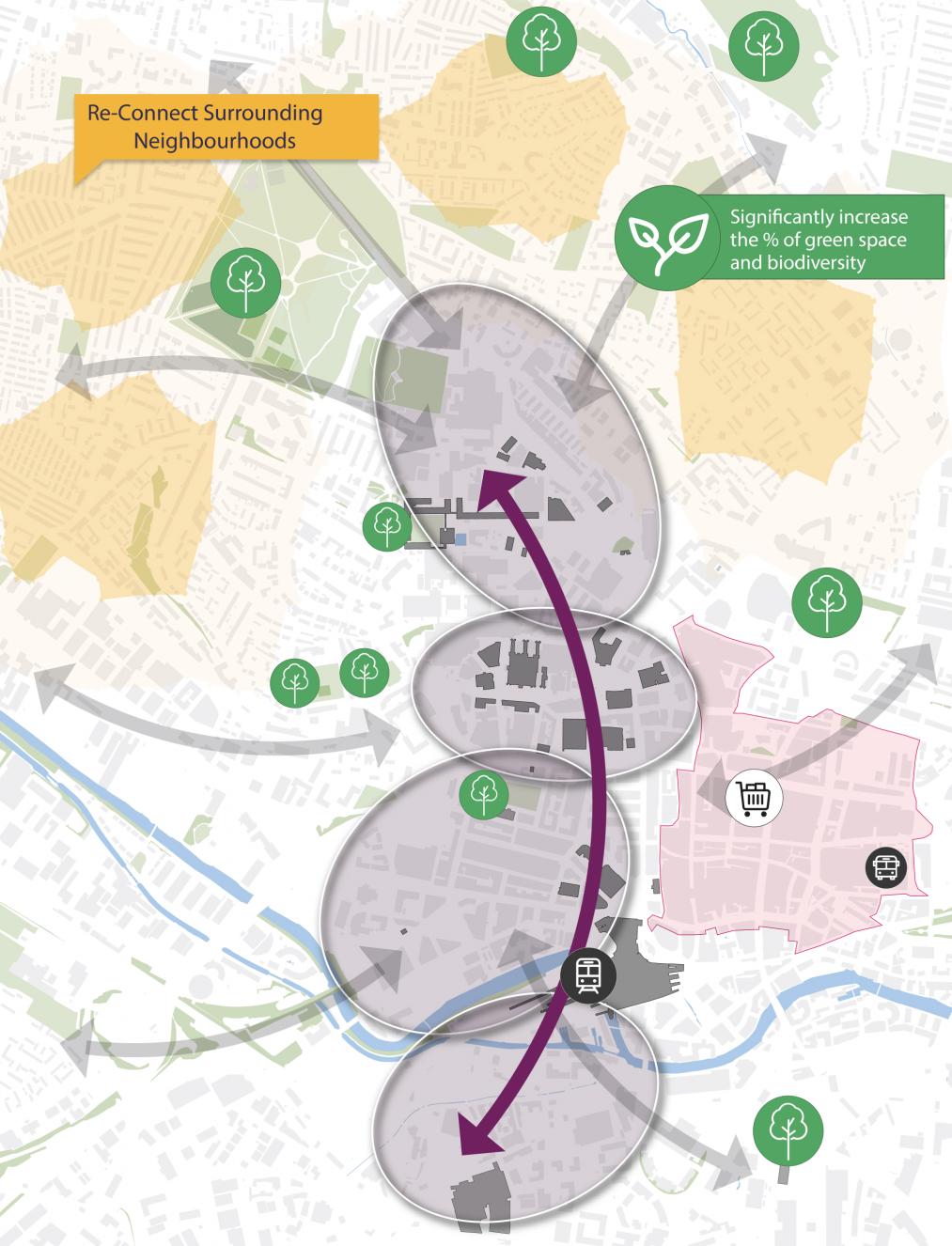
Aboard the Arc
There are strong, prevailing winds of change behind us bringing exciting new infrastructure and impetus.
The Leeds Innovation Partnership, comprising some of our core members, is developing the city’s innovation vision, which manifests in the emerging Innovation Arc.
The Arc is one of the largest regeneration schemes in the North. It brings together a series of innovation neighbourhoods, formed around the natural anchors of our main universities, the proposed adult and children’s hospitals, and major private sector partners. It’s about combining the brilliant assets we already have with exciting new infrastructure to foster an environment where entrepreneurs and innovators can be confident, they are surrounded by the knowledge and support to make an impact. Health innovation is right at the heart of this community.
Leeds Teaching Hospitals NHS Trust plans to build two new hospitals in what would be one of the most important developments in the city for a generation. It will transform healthcare in the region as well as be the catalyst for the new innovation village, creating a world-class hub for research, innovation and technology in health and life sciences.
So, there is no shortage of energy or ideas across our partnership about innovating to drive much needed change and improvement. We’ll be exploring this further with city and industry partners at a city health innovation workshop in March.
I’m delighted to lead our role in identifying the gaps and barriers, and helping partners to work together to bring their ideas to fruition and make a real difference for the people of Leeds and West Yorkshire.
Have a good weekend,
Kate
What else has been happening this week?
Six areas across the country, trialling innovative long-term solutions to free up hospital beds (one being in Leeds)
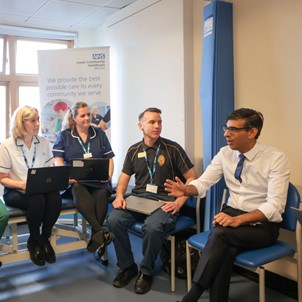 In a statement in Parliament on Monday 9 January, the Health and Social Care Secretary outlined a series of further measures to address current pressures facing the NHS over winter, including long waits for emergency care and delays to discharging patients who are medically fit to leave hospital.
In a statement in Parliament on Monday 9 January, the Health and Social Care Secretary outlined a series of further measures to address current pressures facing the NHS over winter, including long waits for emergency care and delays to discharging patients who are medically fit to leave hospital.
This include six areas trialling innovative long-term solutions to free up hospital beds and make sure patients get the right care at the right time, which could be rolled out across the NHS if successful.
This new programme will trial long term solutions to issues which result in patients staying in hospital longer than necessary. One of the six is Leeds, It includes looking to improve how health teams in their local hospitals are working with those providing community services such as rehabilitation, which will mean better support locally for patients who need support after a hospital stay.
The new measures follow the Prime Minister’s speech last week on building a better future, where he set out one of his key promises that NHS waiting lists will fall and people will get the care they need more quickly. You can read more on the Government’s website.
NHS West Yorkshire partnership organisation meeting in public
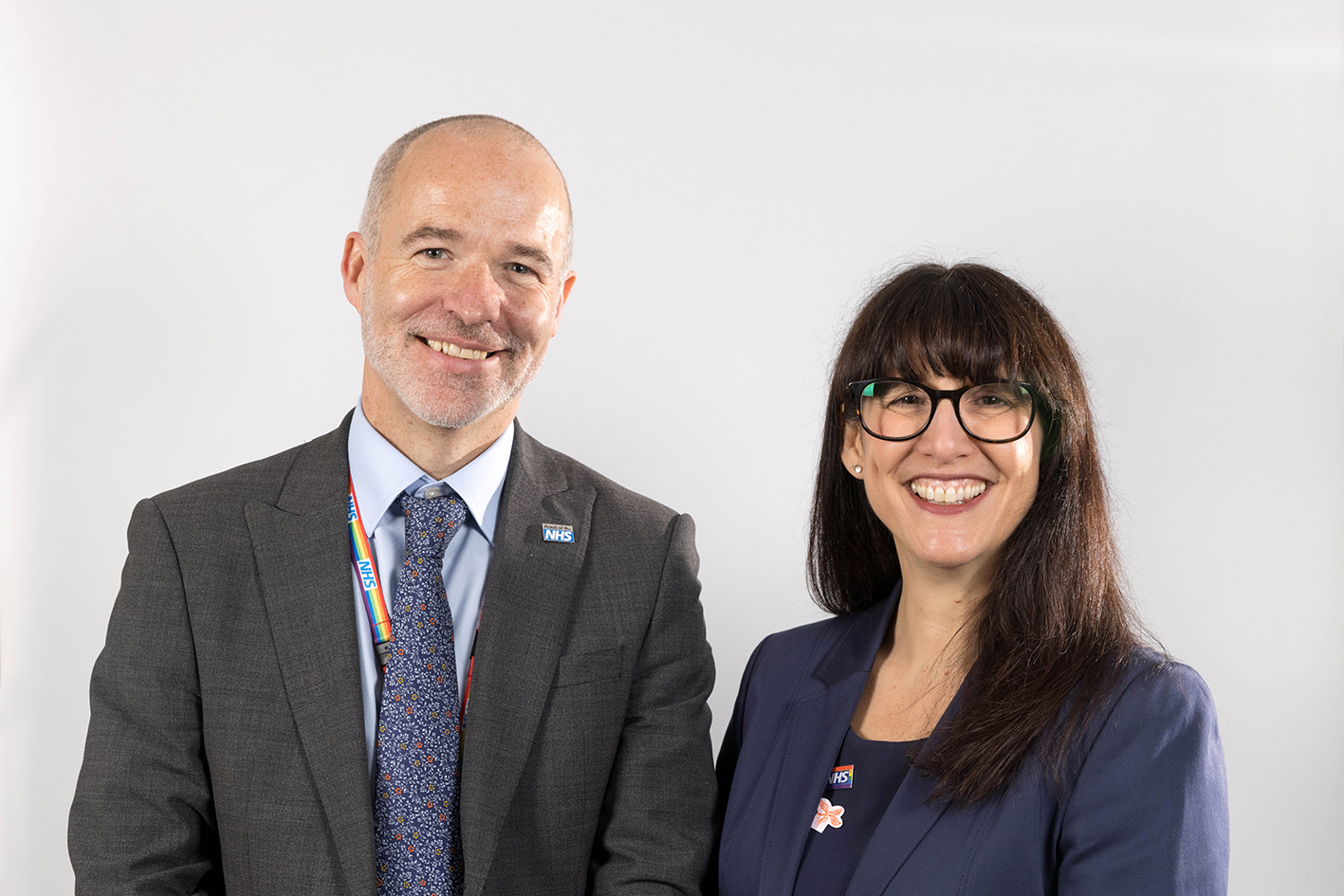 The NHS West Yorkshire Integrated Care Board (ICB) will meet in public for the third time on Tuesday 17 January at Village Hotel Leeds South, Morley at 12.45pm.
The NHS West Yorkshire Integrated Care Board (ICB) will meet in public for the third time on Tuesday 17 January at Village Hotel Leeds South, Morley at 12.45pm.
The Board is part of the legislation set out in the Health and Care Act 2022, which came into force on the 1 July 2022. It focuses on improving outcomes for people by addressing health inequalities, the difference in care received and effective use of budgets across the area. It is part of West Yorkshire Health and Care Partnership (WY HCP), an integrated care system.
The meeting on the 17 January will include an update report from Cathy and Rob, as well as items on workforce planning, winter performance and local place updates. People are asked to contact westyorkshire.
Have your say on how health services are delivered across West Yorkshire
 NHS West Yorkshire Integrated Care Board is asking people and communities to come forward and share their views on how health services should be delivered to them locally, and across West Yorkshire. With the passing of the Health and Care Act 2022, there is a requirement for integrated care systems (like the West Yorkshire Health and Care Partnership) to develop a five-year integrated health and social care strategy and for integrated care boards to develop a joint forward plan to deliver the NHS components.
NHS West Yorkshire Integrated Care Board is asking people and communities to come forward and share their views on how health services should be delivered to them locally, and across West Yorkshire. With the passing of the Health and Care Act 2022, there is a requirement for integrated care systems (like the West Yorkshire Health and Care Partnership) to develop a five-year integrated health and social care strategy and for integrated care boards to develop a joint forward plan to deliver the NHS components.
Building on the West Yorkshire Health and Care Partnership Five-Year Strategy ‘Better health and wellbeing for everyone’ published in 2020, the Partnership has coproduced a refreshed draft Integrated Care Strategy. The Partnership is now seeking people’s views on how its ambitions for the NHS will be achieved in a new Joint Forward Plan for the area. The plan is expected to be published by the 30 June 2023.
People can have their say by completing a short survey online at https://bit.ly/wyviews or by contacting their local Healthwatch by Monday 20 February 2023 to answer a few questions. More information is available on the Partnership’s website at wypartnership.co.uk/your-views
Public involvement for this piece of work starts on the 10 January 2023. You can read more about the consultation in this news piece.
West Yorkshire and Harrogate Cancer Alliance
West Yorkshire and Harrogate Cancer Alliance has been awarded more than £1m during 2022 to 11 innovative projects that support cancer service recovery and contributes to the achievement of:
- Diagnose 75% of cancers at Stages 1 and 2
- An extra 55,000 patients each year survive for five years or more following their cancer diagnosis
- Speed up the path of innovation to business as usual, spreading proven new techniques and technologies and reducing variation
The beneficiaries are involved in a wide range of innovative projects across West Yorkshire and Harrogate including an initiative to increase cervical cancer screen uptake for people with learning disabilities; the setting up of a frailty clinic for patients with a moderate/severe frailty score and a pilot project focusing on the transformation of the current two week wait head and neck cancer pathway.
‘Get jabbed’ plea from Integrated Care Board Medical Director
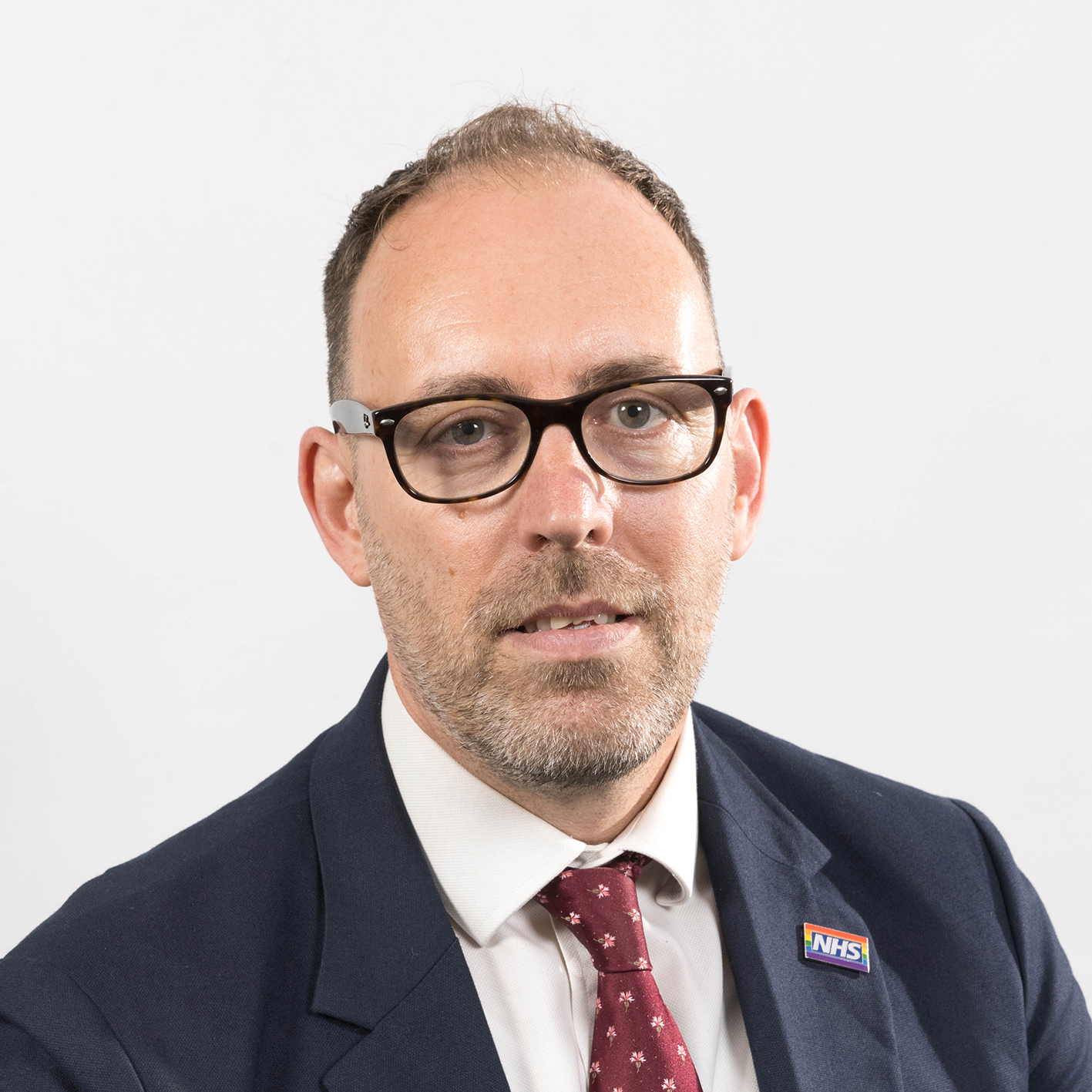 Dr James Thomas, GP and Medical Director for our NHS West Yorkshire Integrated Care Board, is making the plea as viruses continue to spread widely across the region and put increasing pressure on already stretched NHS services.
Dr James Thomas, GP and Medical Director for our NHS West Yorkshire Integrated Care Board, is making the plea as viruses continue to spread widely across the region and put increasing pressure on already stretched NHS services.
Figures last week showed that nationally one in every eight hospital beds is being used for someone with either COVID or flu. And experts fear this will continue to be a strain on the NHS for the remaining winter months, with the XBB1.5 variant that is spreading extremely rapidly in the US also being a cause for concern.
Almost two thirds of those eligible for a COVID booster in West Yorkshire have already had the vital top up jab since the rollout started last autumn. However, that means there are still over 400,000 people at increased risk from the virus who have yet to get protected.
Both bookable and walk-in appointments are still available at clinics across the region, as well as at pop-up clinics being held in local communities. People can book an appointment online at www.
"The number of people being admitted to hospital with both flu and COVID needs to be a wake-up call to everyone who hasn’t come forward for their vaccinations yet,” said Dr Thomas. “It’s quick and easy to get your jabs so please help protect both yourself and the NHS and make it a New Year’s resolution to get yours as soon as you can.”
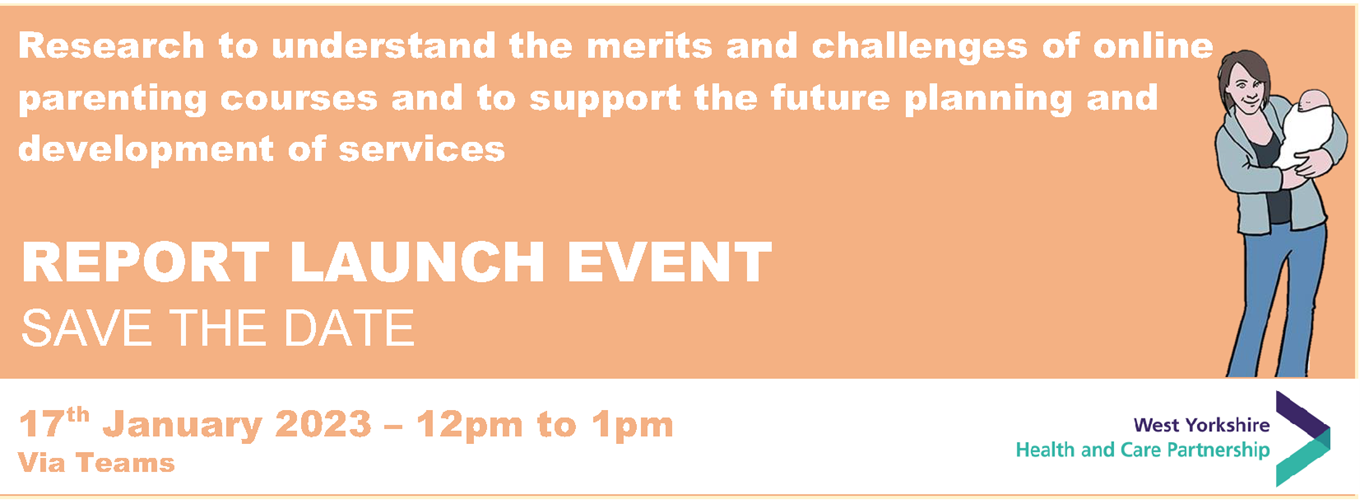
Our children and young people’s programme
Our West Yorkshire Family Resilience and Early Help Group on behalf of the West Yorkshire Children, Young People and Families Programme are pleased to invite you to join us for a lunch and learn session to launch the West Yorkshire report on research to understand the merits and challenges of online parenting courses The research was undertaken by Starks Consulting Ltd and Leeds Beckett University and included a multi-modal approach that generated a range of qualitative and quantitative data from early help practitioners, partners and parents across West Yorkshire. This included interviews and focus groups with early help practitioners across West Yorkshire, a workforce survey, a parent survey and interviews with parents who had completed online parenting programmes. The key aims of the research were to understand how and to what extent services in West Yorkshire delivered online parenting programmes. The study looked to capture:
- The value and merits of such delivery
- The impact of online learning on parenting
- Ultimately on the quality of their relationships with their children.
Based on the evidence gathered from the research across West Yorkshire a report has been produced with key findings, case studies and recommendations to support the future planning and development of services which we are launching at this lunch and learn session. Following the launch, the report will be available for all organisations across West Yorkshire.
Register via this Eventbrite link and join us on Tuesday 17 January 2023 from 12pm -1pm.
Check your pulse as part of Stroke Prevention Day
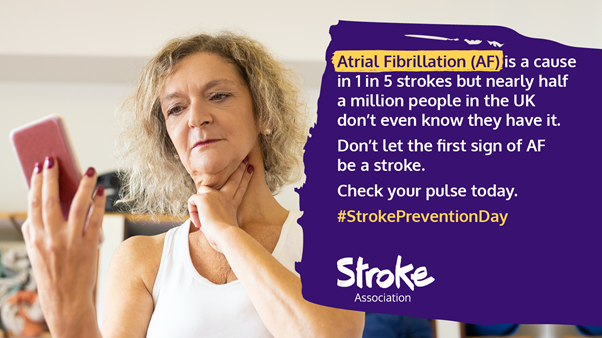 Following this year’s Stroke Prevention Day (Thursday 12 January), we’re asking people to check their pulse for atrial fibrillation. Atrial fibrillation can happen to anyone at any age, but you’re more likely to get it the older you get.
Following this year’s Stroke Prevention Day (Thursday 12 January), we’re asking people to check their pulse for atrial fibrillation. Atrial fibrillation can happen to anyone at any age, but you’re more likely to get it the older you get.
Atrial fibrillation, or AF is when your heart beats with an irregular rhythm. When this happens, your heart won’t empty all of the blood out of its chambers with every beat. Then, if your heart chambers aren’t empty, the leftover blood can form clots which travel from your heart into the brain, blocking off blood flow and causing a stroke.
This video (1 minute, 23 seconds) from The Stroke Association shows you how to check yourself or your friends and family at home, with a simple pulse check.
It is estimated that there are as many as half a million people living with AF who don’t know it. AF is a cause in 1 in 5 strokes, and it is estimated that nearly 500,000 people are currently living with AF without knowing. It is therefore important that we spread this message and get everyone to check themselves, so that we can identify AF early and prevent more strokes from occurring.
People who suspect they have AF should contact their GP surgery/practice to discuss next steps. Stroke survivors living with AF should be supported to managing their AF by their medical team. Further advice is available from The Stroke Association guidelines here.
Fully funded end of life training
Until March 2023, virtual courses are available for those who deliver personalised care across West Yorkshire, including health, social care and VCSE staff and volunteers who need to be able to deliver culturally competent personalised care, taking into account individual needs, preferences and circumstances.
There are four modules which can be attended in any order or as stand-alone courses.
- Supporting personalised and advance care planning discussions at the end of life
- Difficult conversations at the end of life
- Supporting carers to care for patients in last weeks and days of life
- Bereavement and loss (including self-care)
Training will be delivered via Zoom, by Palliative Care Clinicians and educators from St Gemma’s Hospice. For more information and to register, visit the event's page on Eventbrite.

